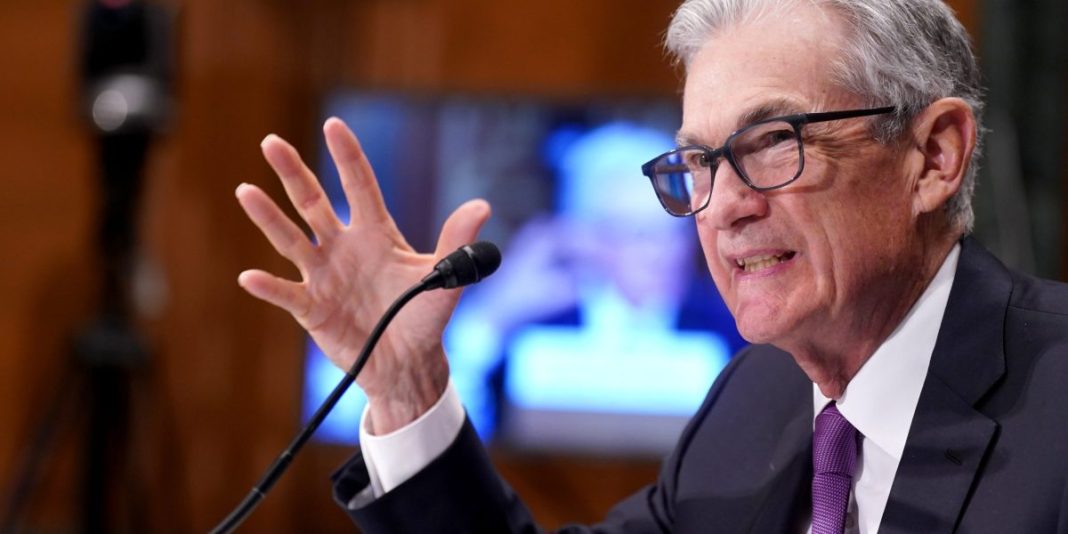The Federal Reserve begins its two-day meeting Tuesday amid signs that inflation is not only sticky but also ticking back up, despite rates hovering at the highest level since 2001.
The central is expected to hold rates steady at 5.25%-5.5%, where they have been since July, but commentary from Fed Chair Jerome Powell will be particularly scrutinized. That’s after his speech earlier this month, when he largely shut down hopes for rate cuts anytime soon.
“Right now, given the strength of the labor market and progress on inflation so far, it’s appropriate to allow restrictive policy further time to work,” Powell said at a policy forum on Canada-U.S. economic relations in Washington, D.C., adding that if inflation does persist the Fed will “maintain the current level of [interest rates] for as long as needed.”
His prepared remarks at the post-meeting press briefing on Wednesday will likely echo this speech, but the key moment to watch will be during questions and answers, JPMorgan economist Michael Feroli said in a note.
While Powell’s earlier comments indicated he isn’t looking at additional rate hikes and instead limited the options to either holding steady or cutting, Feroli predicted the issue of further increases will still come up.
“We assume the press corps won’t let him off so easy and will push him on what would lead to hikes,” he wrote. “There we’d expect Powell to say hikes are not the base case but also something that will depend on the data and can’t be ruled out.”
The upcoming meeting will also come without new so-called dot plots of rate forecasts. The last one in March indicated that Fed officials expected three rate cuts this year.
Those hopes have already been dashed by a string of inflation reports that have failed to show continued cooling, and Feroli said Powell is unlikely to defend March’s forecast.
Others on Wall Street have also said that Powell may have to acknowledge the possibility of rate hikes. Bloomberg Economics predicted he will make a “hawkish pivot” at the Fed meeting.
“At the minimum, he’ll likely indicate the median FOMC participant now expects ‘less’ cuts this year. In a more hawkish direction, he could hint at a chance of no cuts — or even suggest a hike might be on the table, though not the current baseline,” wrote Anna Wong, Stuart Paul, Eliza Winger and Estelle Ou.
Analysts at Bank of America said as long as the Fed’s baseline outlook hasn’t changed, policymakers will give current rates more time to work.
Powell will indicate the next move—whenever that time comes—is still likely to be a rate cut, they added, while the Fed stays in wait-and-see mode until inflation cools further.
For its part, BofA sees a rate cut coming in December and said the bar for a rate hike is very high. But it laid out two scenarios where that would be necessary: if core inflation picked up in a way that suggests the economy is overheating, or if expectations for future inflation go up even if present-day inflation doesn’t re-accelerate.
“The longer it stays meaningfully above 2.0%, the greater the probability that long-run inflation expectations move higher,” BofA said. “If they do, the Fed will view this as a loss of credibility and a reason to move the policy rate higher.”


